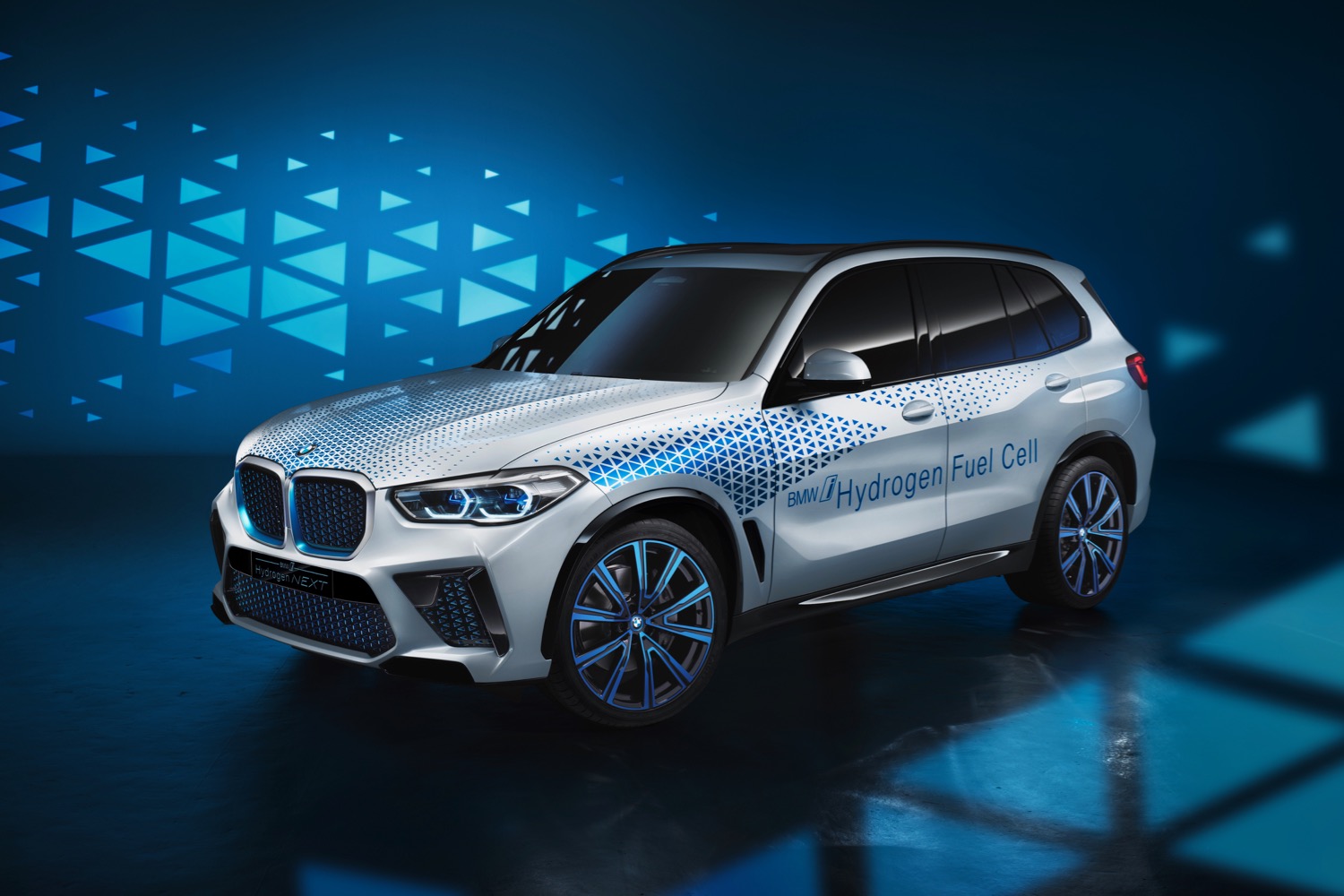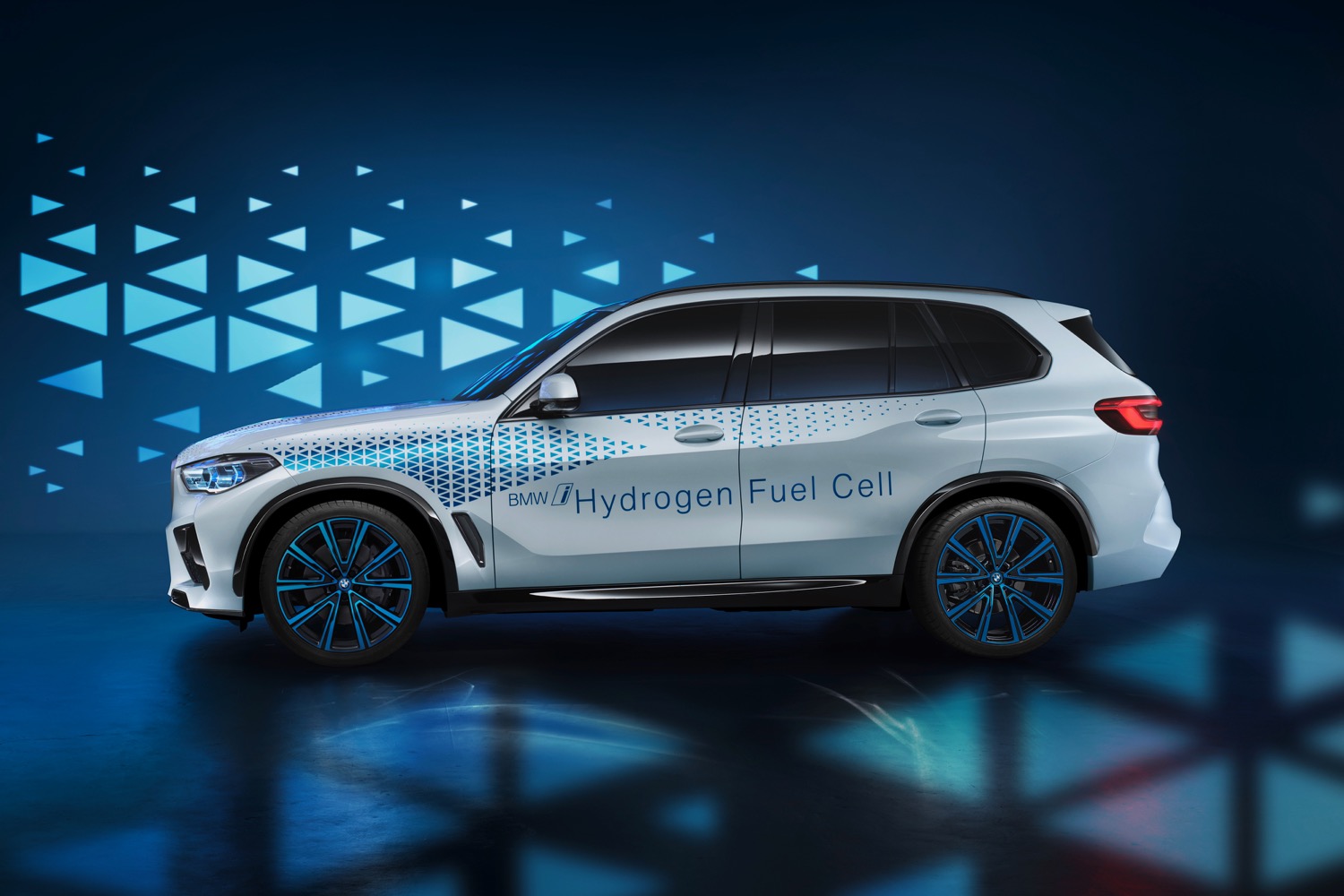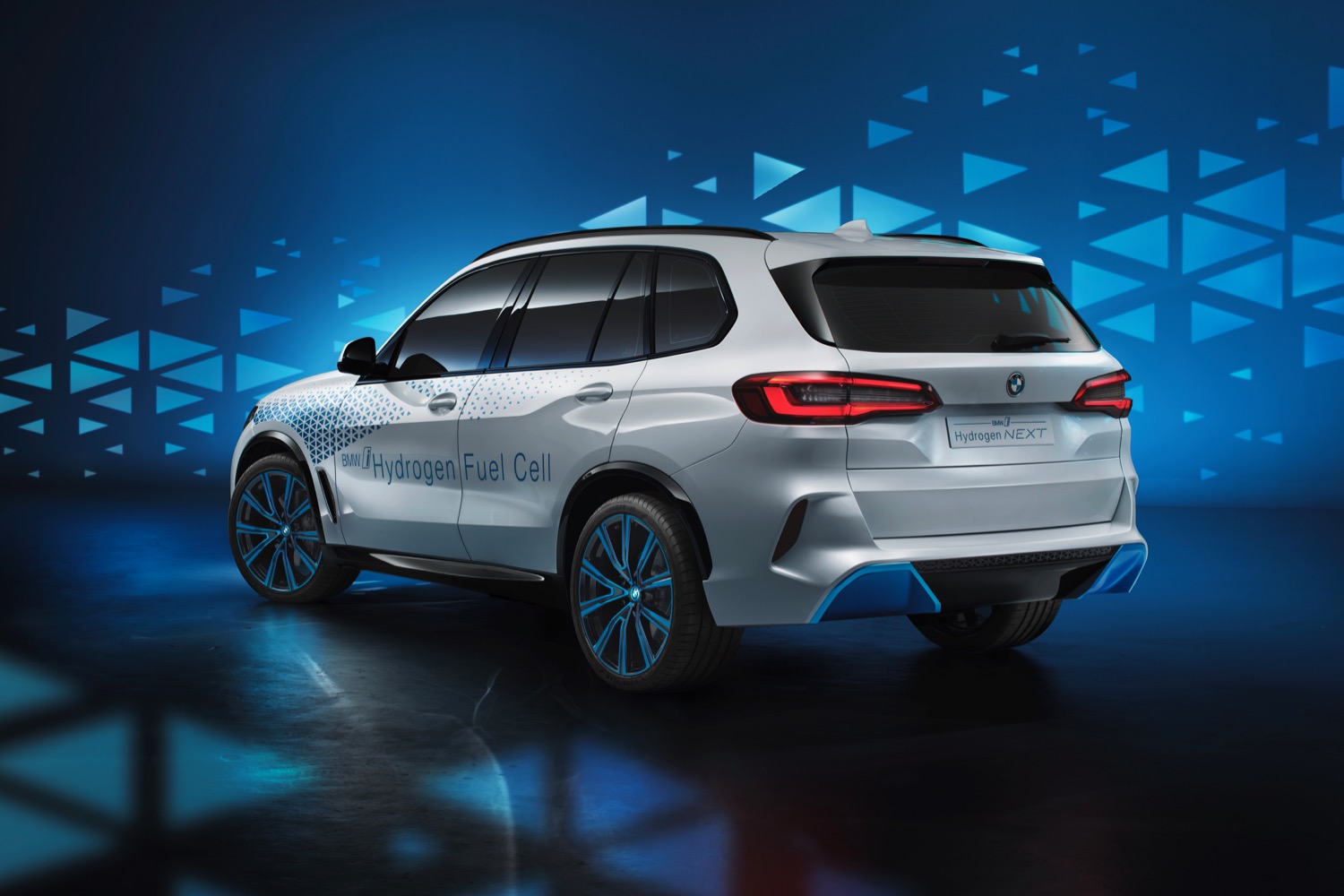BMW has tested hydrogen fuel cell cars for years, but has only hinted about putting one into production. The latest tease is the BMW i Hydrogen Next concept, a fuel cell version of the automaker’s X5 SUV debuting at the 2019 Frankfurt Motor Show. BMW confirmed that it will build a small batch of production models beginning in 2022, but plans for mass production are still up in the air.
The i Hydrogen Next concept is the latest product of BMW’s partnership with Toyota. The two automakers previously teamed up on the twinned BMW Z4 and Toyota Supra sports cars. It makes sense for BMW to turn to Toyota for fuel cell tech, as the Japanese automaker is one of the biggest proponents of hydrogen power. In addition to being one of the few manufacturers currently selling a fuel cell car to customers, Toyota has developed fuel cell powertrains for trucks and buses, and even a lunar rover.
BMW didn’t disclose any specifications, but said the i Hydrogen Next concept’s powertrain was developed using lessons learned from a small fleet of 5 Series Gran Turismo-based prototypes it has been testing since 2015. While those vehicles were never intended for customer use, BMW does plan to build a handful of fuel cell X5s, beginning in 2022. Those vehicles will likely serve as a beta test fleet, gauging customer reactions to fuel cell vehicles. BMW did a similar thing with battery-electric cars, using small fleets of Active E and Mini E models to pave the way for its first mass-produced electric car, the i3.
The i Hydrogen Next concept shows that BMW is hedging its bets when it comes to reducing emissions. The German automaker is also heavily invested in battery-powered vehicles. It plans to launch a new electric Mini and an electric version of the popular X3 SUV in the coming years. BMW also has several plug-in hybrids in its lineup, and actually unveiled the latest-generation X5 plug-in hybrid alongside the Hydrogen i Next in Frankfurt.
Hydrogen fuel cells offer some advantages over batteries. It’s easier to get more range out of fuel cells than batteries (all three fuel cell vehicles currently sold in the United States are rated at over 300 miles of range) and refueling is quicker than recharging (BMW reckons four minutes for a full tank of hydrogen). The downside is that not many hydrogen fueling stations exist. That’s why BMW is hesitant to pull the trigger on the mass production of fuel cell cars.
In a statement, BMW said it could start offering fuel cell cars to customers in larger numbers by 2025, at the earliest. But this will depend on “market requirements and overall conditions,” the automaker said.





